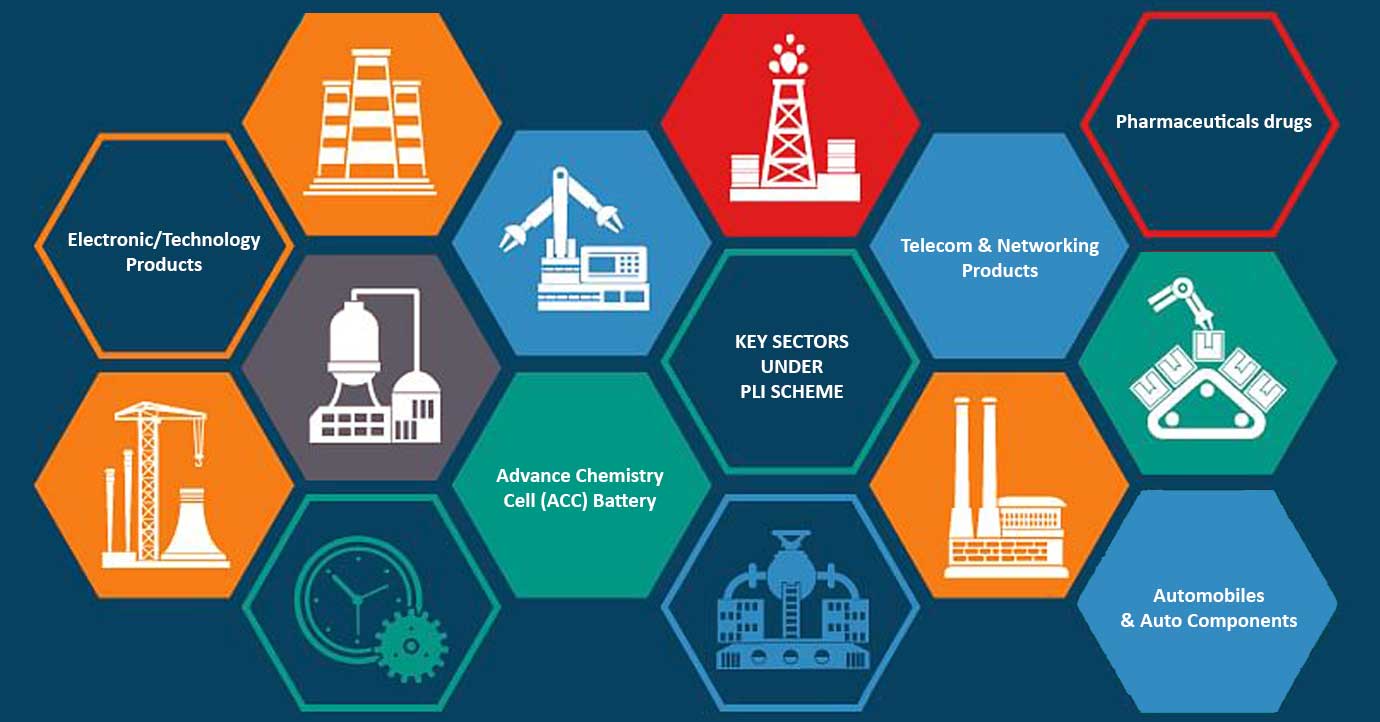The Union Cabinet chaired by the Prime Minister, Shri Narendra Modi recently approved Production Linked Incentive (PLI) scheme worth up to Rs 1.46 lakh crore over a 5 year period in a bid to boost India’s manufacturing capabilities and enhancing exports. The scheme in the following 10 key sector will make Indian manufacturers globally competitive, attract investment and enhance exports.
| Sectors | Sum allocated in Rs. Crores | Sectors | Sum allocated in Rs. Crores |
| Advance Chemistry Cell (ACC) Battery | 18,100 | Textile Products: MMF segment and technical textiles | 10,683 |
| Electronic/Technology Products | 5,000 | Food Products | 10,900 |
| Automobiles & Auto Components | 57,042 | High Efficiency Solar PV Modules | 4,500 |
| Pharmaceuticals drugs | 15,000 | White Goods (ACs & LED) | 6,238 |
| Telecom & Networking Products | 12,195 | Speciality Steel | 6,322 |
The PLI scheme will be implemented by the concerned ministries/departments of the Government of India and will be within the overall financial limits prescribed. The PLI scheme across these 10 key specific sectors will make Indian manufacturers globally competitive, attract investment in the areas of core competency and cutting-edge technology; ensure efficiencies; create economies of scale; enhance exports and make India an integral part of the global supply chain.
The above is in addition to the already notified PLI schemes in the following sectors:
- Mobile manufacturing and specified electronic components (Rs. 40,951 crores)
- Critical Key Starting materials/Drug Intermediaries and Active Pharmaceutical Ingredients (Rs. 6,940 Crores)
- Manufacturing of Medical Devices (Rs. 3,420 Crores)
The Prime Minister’s clarion call for an ‘Aatmanirbhar Bharat’ envisages policies for the promotion of an efficient, equitable and resilient manufacturing sector in the country. Indian industries and economy are still recovering from the pandemic. The production linked incentives spread over 5 years will boost indigenous manufacturing in various sectors including consumer durables/white goods. Growth in production and exports of industrial goods will greatly expose the Indian industry to foreign competition and ideas, which will help in improving its capabilities to innovate further. Promotion of the manufacturing sector and creation of a conducive manufacturing ecosystem will not only enable integration with global supply chains but also establish backward linkages with the MSME sector in the country. It will lead to overall growth in the economy and create huge employment opportunities.





